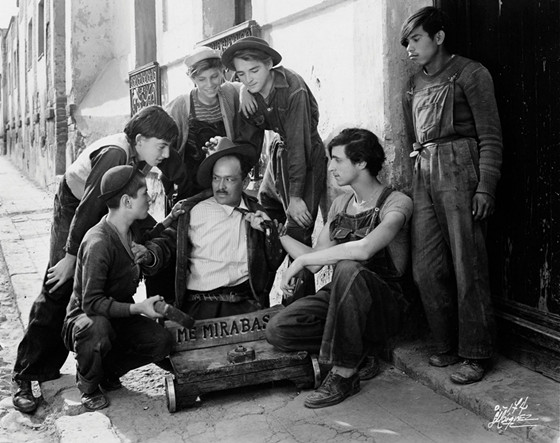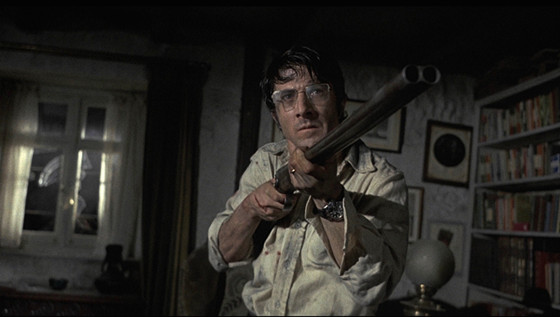6. Maria Full of Grace (2004)

Joshua Marston’s Maria Full of Grace is the story of seventeen-year-old Maria (Catalina Sandino Moreno) and the obstacles that come with pregnancy and new beginnings. The film starts with Maria working in a flower plantation to help support her family. The film foreshadows difficulties ahead in Maria’s position as a rose de-thorner. Maria quits her job after a negative experience with her boss, but is soon desperate for money after getting pregnant from her boyfriend.
Maria’s innocence is tested when she is asked to be a drug mule and swallow drug pellets. Maria witnesses another drug mule covered in blood, being carried outside after having the drug pellets explode in her stomach. Maria’s fear leads her to use the drug mule’s sister for shelter, all the while being dishonest about the recent death. The corruption for Maria comes from a place of survival, as most on this list do.
Maria’s journey to deliver the drug pellets leads her on a path littered with lying, theft, and death. The film portrays Maria’s need to work as a response to her sister’s life as a single mother. It is clear that Maria wants a better life for her baby. Maria crosses to the side of unlawfulness to secure a future for her own innocent child.
Will the cycle of corruption continue?
7. Los Olvidados (1950)

Luis Buñuel’s haunting film Los Olvidados takes place in a Mexico City slum, and follows the lives of a group of deprived children. The film is a tale of revenge and blind immoral actions by corrupted children acting on impulse. It follows two juvenile delinquents, Pedro (Alfonso Mejía) and El Jaibo (Roberto Cobo).
The film depicts a theme of good and evil, with young Pedro trying to rectify his actions, and El Jaibo continuously committing heinous acts. The constant battle between the boys ultimately leads to Pedro’s death at El Jaibo’s hand. The theme of corruption is solidified at the end of the film when Pedro’s mother, unaware of his death, searches for him out of parental concern.
Los Olvidados proved to be an international success for Luis Buñuel. The detached film style brought a punkier element to the film that allowed the audience to make objective opinions about Pedro and El Jaibo.
8. Straw Dogs (1971)

Sam Peckinpah’s Straw Dogs forces the protagonists, David (Dustin Hoffman) and Amy (Susan George), to resort to violence as a defense against the disturbed locals of their new town. The innocence in this particular film is one of every day man. Straw Dogs proves that each person has a breaking point, and the level of corruption achievable in the film is dormant within us all.
The film balances tension and ignorance as the events unfold for David and Amy. The constant movement makes the audience feel as though another corrupted act is around the corner. The tilted shots emphasize the tension and alertness of the scene.
Straw Dogs has had lots of controversy surrounding it, particularly for the extensive rape scenes. Although the film was censored at the time, it was recently remade for a newer audience. The film stars James Marsden as David, Kate Bosworth as Amy, and Alexander Skarsgård as Charlie.
9. George Washington (2000)

George Washington is David Gordon’s 2000 drama about children in a small town that experience murder and cover it up. The emotional film follows Nasia (Candace Evanofski) as she leaves a relationship to befriend a soft-skulled introvert named George (Donald Holden). Innocence is taken from the children as the events of their friendship lead to a murder in rural North Carolina.
The film begins with two children breaking up and fades into a bright background with children playing. The two scenes differ emotionally but relate back to the childlike innocence of a first love and running around with friends.
Nasia’s voiceover reiterates the idea of innocence when she describes her friend George as one day “leading a parade and waving a flag on the fourth of July”. Nasia follows that with a grim description of life for their parents which echoes the relationship of the children pre-murder and after.
10. Magnolia (1999)

A film that weaves the lives of many on an existential level is Paul Thomas Anderson’s Magnolia. Each character is interwoven to a central unifying theme of corruption during innocence. The flaws of the characters are influenced by negative moments from their childhood that continue to fester in response to life.
The philosophical subtext of the film makes the effects of corruption even more sad as they begin to manifest. Magnolia revels in the fact that every action has a reaction. In this case, the reaction is fraud, alcoholism, theft, and infidelity.
The film has a star-studded cast that includes Tom Cruise as Frank T.J. Mackey, Julianne Moore as Linda Partridge, John C. Reilly as Officer Jim Kurring, and Alfred Molina as Solomon Solomon.